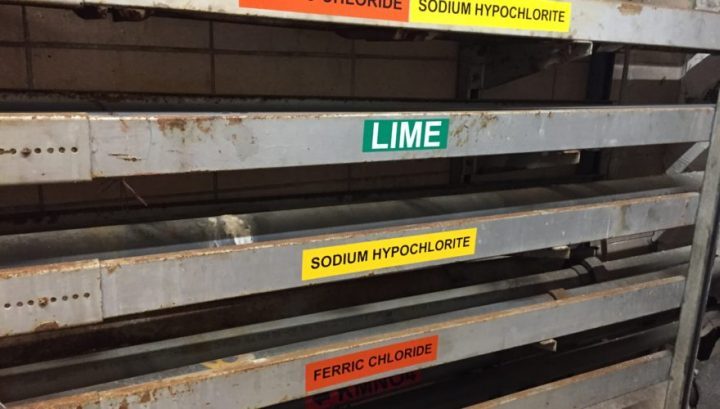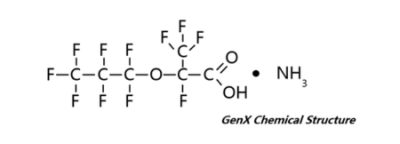
Reprinted from North Carolina Health News
DuPont downplayed its own animal research regarding potential risks from the chemical GenX that the company released into the Cape Fear River for decades, a new lawsuit alleges.
Supporter Spotlight
And the company prolonged exposure to GenX and other compounds by not disclosing their release into the river, which feeds public drinking water systems downstream, the lawsuit filed in federal court says.
Filed by the Brunswick County government, which owns one of those water systems, the complaint delivers the most searing accusations yet regarding DuPont’s understanding of potential health risks from GenX.
 “For nearly forty years, Defendants have been secretly releasing their persistent, bioaccumulative, and toxic perfluorinated chemicals into the Cape Fear River at unsafe levels and contaminating the drinking water source for hundreds of thousands of North Carolinians — just as they did in the Ohio River — all the while misleading state and Federal regulators and the Public,” according to the complaint.
“For nearly forty years, Defendants have been secretly releasing their persistent, bioaccumulative, and toxic perfluorinated chemicals into the Cape Fear River at unsafe levels and contaminating the drinking water source for hundreds of thousands of North Carolinians — just as they did in the Ohio River — all the while misleading state and Federal regulators and the Public,” according to the complaint.
GenX is one of a group of compounds called per- and polyfluoroalkyl substances, or PFASs, a share of which may pose harm to people.
On Wednesday, DuPont spokesman Dan Turner said company officials would respond to the new North Carolina lawsuit in court, not in the media. But he stressed that there is no evidence that chemical releases from the industrial site that DuPont built and ran for decades in Bladen County have harmed people.
Supporter Spotlight
“It is important to note North Carolina regulators have publicly stated that they believe the drinking water is safe,” Turner said. “Although we understand that public concern about PFCs has increased in recent years, we have no reason to believe that the discharges at issue have harmed anyone.”
Accusations regarding research in the suit are based on reviews of published research and studies DuPont submitted to EPA, said environmental attorney Scott Summy with the national law firm Baron & Budd, which is representing Brunswick County.
The lawsuit alleges the following:
- Publicly reported results of DuPont and Chemours studies on Gen X toxicity “contain misrepresentations and factual misstatements that tend to understate GenX’s potential for toxicity.”
- DuPont data show toxic effects in animals from short-term, subchronic and long-term exposure.
- GenX exposure to rats and mice prompted incidence of cancers at levels exceeding those detected in controls in the brain, liver, adrenal glands, pancreas and testicles.
- GenX posed reproductive and developmental risks to lab animals, as well as toxicity in the liver, kidneys, the hematological system, adrenal glands and stomach.
- DuPont animal studies demonstrated an association between GenX and effects found from other PFASs, including changes in the liver, kidney, pancreas, testicles and the immune system.
The lawsuit, which seeks punitive damages, is filed against DuPont, its spinoff Chemours, and the newly formed DowDuPont Inc., a recent DuPont and Dow Chemical merger. DuPont built Fayetteville Works in Bladen County, the source of this chemical contamination, in the 1970s and ran it until 2015, when its spin-off company Chemours took over.
This latest lawsuit also emphasizes that researchers have detected several PFAS compounds downstream of Fayetteville Works.
“While everyone focuses on whether any one single chemical may be above a standard, no one talks about the cumulative effects of all of them together,” Summy, the Brunswick County attorney wrote in an email on Wednesday.
The Cape Fear Public Utility Authority, which operates a water system in Wilmington, has also filed a lawsuit in federal court against DuPont and Chemours over the GenX contamination. This week the utility made clear it badly wants information on all PFAS released at the site.
The utility authority this week filed an “urgent public records” request to the North Carolina Department of Environmental Quality seeking all information the agency has regarding the chemical releases, even information Chemours or DuPont says is confidential.
“The identities of perfluorinated and polyfluorinated substances that pollute a river that is a public water supply source are not confidential business information and should not be withheld,” its records request letter says.
Utility officials argue they need this information to design an upgrade to its water treatment plant to capture perfluorinated and polyfluorinated substances before they reach the drinking water distribution system. Officials also wants to identify and find ways to remove any PFAS that might remain in its distribution system.
“At present, CFPUA must rely on consultants to reverse engineer the identity of the substances (i.e., find substances without knowing what they are) based only on current intake water quality,” the utility’s request states.
The organization even offered to dispatch qualified helpers to assist DEQ offices to retrieve and copy the records if that would facilitate the process.
This story is provided courtesy of North Carolina Health News, a website covering health and environmental news in North Carolina. Coastal Review Online is partnering with North Carolina Health News to provide readers with more environmental and lifestyle stories of interest about our coast.






